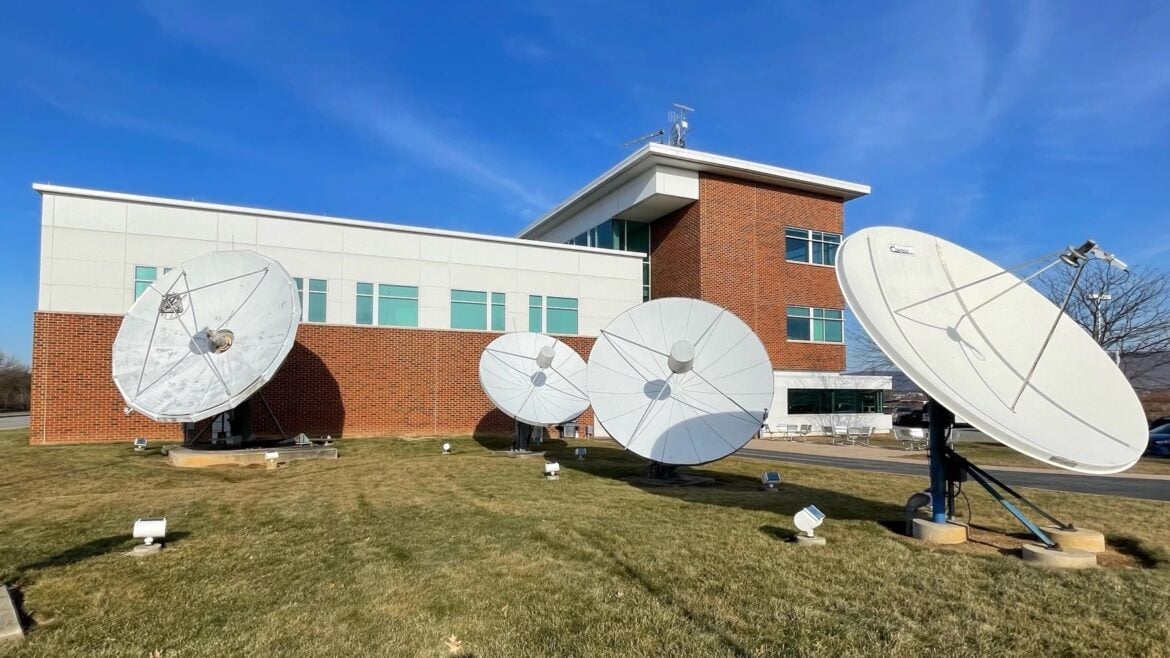University to begin ‘wind down’ of WPSU after acquisition vote fails

WPSU's studios in State College, Pa.
A Penn State University board of trustees committee rejected a proposal Thursday from WHYY to acquire WPSU, its dual licensee serving central Pennsylvania. The university will instead develop a plan to close the stations next year.
The acquisition proposal would have transferred WPSU’s operating assets to Philadelphia’s WHYY. Penn State would have paid $17 million over five years to support the transition.
But trustees on the board’s finance and investment committee rejected the plan, criticizing its structure and expressing concerns that WHYY was not committed to retaining WPSU’s staff.
“I don’t like to pay somebody a subsidy to run a business and, at the end of the day, there’s no guarantees they’ll stay in business,” one trustee said before the vote during the meeting, which was livestreamed. “They’re going to get all these assets. And then the thing that bothered me the most is that they have not committed to hire our employees.”
“Now, the University will develop a wind-down plan ending, at the latest, on June 30, 2026,” the university said in a statement on the vote.
“This was an incredibly difficult decision for trustees, as WPSU has long provided quality public broadcasting programming for communities throughout Central Pennsylvania,” board chair David Kleppinger said in the statement. “We have worked with the administration to find the best path forward for the station and our people who work there. But, given the significant headwinds facing higher education and public media, we could not support the proposed transaction. We know this is a deeply disappointing outcome and we are grateful to the dedicated WPSU employees whose work has enriched our lives and made our community stronger.”
“We respect the Penn State Board of Trustees’ authority and their responsibility to either chart a new path or elect to wind down operations of the station, as well as their decision to reject the proposal for WHYY to acquire WPSU,” WHYY CEO Bill Marrazzo said in an email to Current.
Conversations about the acquisition began in the spring of 2024 and were “always rooted in strengthening public media, but only in ways that would not diminish the resources or services WHYY provides to our audiences in the Tri-State region,” Marrazzo said.
“If invited, we would certainly be open to continuing our discussions with Penn State University,” he added.
Subsidies ‘no longer feasible’
Sara Thorndike, Penn State University’s SVP of finance and business and treasurer, shared the proposal with the committee.
The university’s annual subsidy to the stations of at least $3.4 million is not sustainable, she said. Given cuts to federal funding, “continued long-term subsidy from tuition to support WPSU is no longer feasible,” she said. Before the rescission of federal funding, WPSU staff anticipated $1.3 million in federal funding from CPB in fiscal year 2026.
WPSU’s most recent financial statement shows that expenses exceeded revenues by more than $4 million in FY24 due largely to declines in contributions. Expenses also outpaced revenues by more than $200,000 in FY23.
Thorndike said that WHYY proposed to pay $1 at closing as part of the WPSU acquisition.
WHYY said it would potentially “offer post-closing employment” to any current WPSU staffer, but their employment wasn’t guaranteed, she said. WPSU currently has 44 staff.
“We have a fair offer from WHYY to continue public broadcasting in central P-A for $17 million, which is a similar amount to what the university would have funded WPSU over the next five years,” Thorndike told the committee before the vote. “Still, we acknowledge this is not a small sum. We appreciate the value of WPSU to our community, but can no longer fund WPSU with student tuition, given our declining resources for core teaching and research needs.”
About $4 million in endowments would have been transferred to WHYY, she said.
“I don’t think the way this deal is structured maximizes value to this institution, and I think we need to do a little bit more exploratory work before I’m comfortable approving a deal like this,” said Anthony Lubrano, a trustee on the committee. “So I’ll be voting against it.”






How about letting the students manage the stations and hold regular fundraisers? You’d still need a staff advisor each for radio and TV and a Chief engineer. Still, that would reduce costs significantly and offer a huge resource and educational opportunities to students.